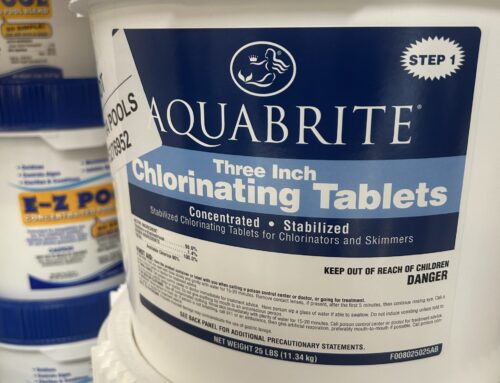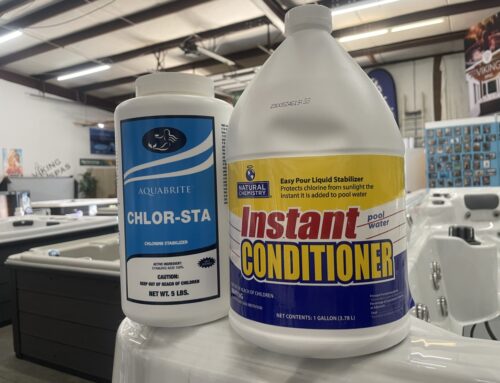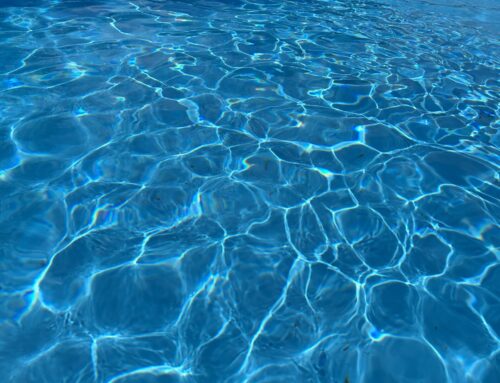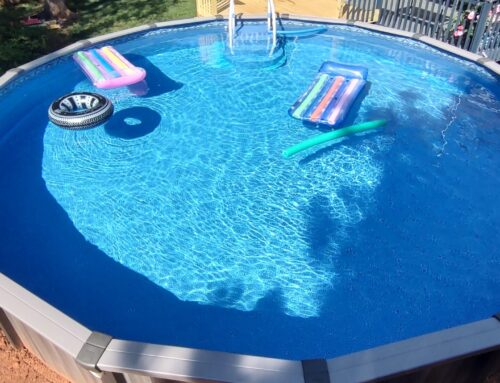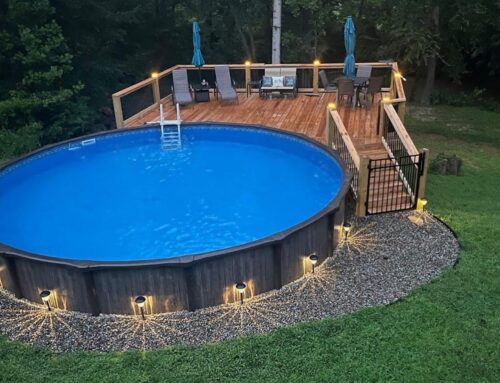How to Remove Pollen From Your Pool
With winter coming to an end, pollen has come in full force very early on in the year. Pollen can produce many issues for pool users: discoloration, clogging of the pump and filter, sanitizer becoming less effective and algae prospering. With pollen in the water, the chlorine will work extra hard to attack it, which will result in the sanitizer becoming less prominent in the water. This can lead to algae, especially as the warm weather becomes more frequent. Thankfully, there are ways to combat pollen to keep your pool clean and the pool season filled with fun.
Skim and Vacuum the Pool
Using a skimmer net and vacuuming the pool will remove the pollen, though one may have to do this at least twice a day due to the prominence of pollen during the spring. It is of course impossible to remove every grain of pollen, but keeping the count low will help maintain the levels of sanitizer in the water. Aquabrite Super Clarifier will assist with the removal of pollen. Add the clarifier, wait about an hour, and then skim and vacuum. The filtration of the pool will also filtrate some of the pollen out.
Filter Savers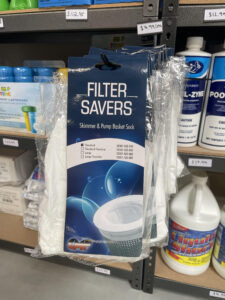
Filter savers are skimmer basket socks that prevents pollen from being filtered through to the pump and filter. The sock can prevent clogs and maintain a consistent filtration.
Natural Chemistry Pool First Aid
Combining the powerful SMARTZyme™ technology with a clarifier to fix pool problems quickly, the product cleans pools of dead algae, pollen, oils, spills, paint and other forms of non-living organic water contamination. Because pollen can also lead to algae, Pool First Aid can help remove both and clear up cloudy water to keep the water crystal clear. It also frees clogged filters of oil and other forms of non-living organic buildup and removes dead algae quickly, many times without pool owners having to backwash, which can stave off having to refill the water back up to the proper water line.
What To Do If Algae Begins To Prosper in the Water
Because pollen can make the sanitizer work harder, resulting in a decrease of it in the water, algae can begin to invade. Shocking the water will fight against the algae and other contaminants in the pool. One may have to add more shock than they usually have to add depending on the severity of the algae. We at Hydra Hot Tubs & Pools can help determine how much shock to add to your pool.
Algaecide is also recommended, though don’t add shock and algaecide in close proximity in time as the two will cancel each other out. The amount of algaecide, like every other product, should be added in relation to the volume of the pool. After several hours, shock can then be added.
If you have any questions regarding how to maintain your pool, we at Hydra Hot Tubs & Pools provide free water tests and offer pool school on the first Saturday of every month at our Rock Hill location.

